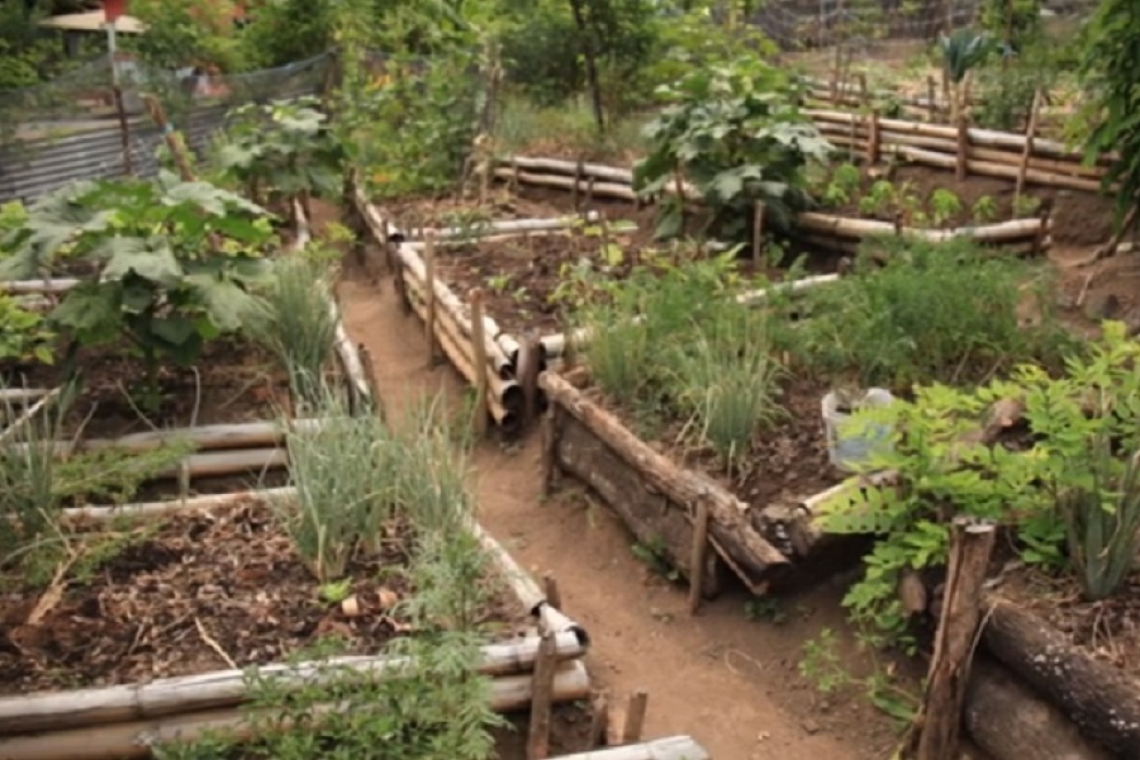An example of a backyard garden in St. Vincent and the Grenadines.
KINGSTOWN, St. Vincent--It might not seem like there is any link between having a water tank in one’s backyard and reducing non-communicable diseases (NCDs) such as diabetes and hypertension.
“But, yes, a water tank can help you reduce your NCDs if you follow the path,” says Dr. Madhuvanti Murphy, a Senior Lecturer in Qualitative Research Methods at the George Alleyne Chronic Disease Research Centre, which is part of The University of the West Indies (The UWI).
Murphy was reflecting on the Intervention Co-creation to Improve Community-based Food Production and Household Nutrition in Small Island Developing States ICoFaN project, which was executed in St. Vincent and the Grenadines (SVG) and Fiji. Through a UK Research and Innovation grant awarded to the University of Exeter, this project was conducted with academic partners including The UWI, The University of the South Pacific, McGill University, Canada, and Université d’Etat d’Haiti, as well as non-governmental organisations (NGOs) Richmond Vale Academy (RVA) in St. Vincent and the Grenadines and The Foundation for Rural Integrated Enterprises and Development in Fiji.
RVA executed the project in SVG. The project started in 2020 and the original plan was to construct 300 backyard gardens, explained Eden Augustus, a PhD student who is the SVG project coordinator for ICoFaN, adding that the COVID-19 pandemic resulted in budget cuts. “So, we tried to do the best with what we had and we decided to work with 100 families.”
Murphy, who holds a doctorate in Public Health, said that St. Vincent and the Grenadines and Fiji were chosen for the execution of the project because they are small island developing states with similar types of issues around high food imports, high NCDs, climate change and sustainable food production, so that they can have more local produce.
“So, with the rates of obesity, chronic disease – diabetes, heart disease and even cancers – being higher in low- and middle-income countries such as these countries, we want to really focus on how do we improve diets, how do we improve diet diversity as well, so that we’re using less of those highly processed foods that are usually imported, because we also have some locally-made or even regionally-made highly processed foods as well.”
The project examined the ways through which the situation could be changed so that the local population could have more access to foods that are locally-grown, that are not processed and increase the consumption of fruits, vegetables and fibre. “Because we know that those things help in reducing the burden of disease, one of the ways we do this is by community-based agricultural food production,” Murphy explained.
The approach, through RVA in St. Vincent and the Grenadines and FRIEND in Fiji, was looking at how backyard gardening helps in terms of improving food and nutritional security. “It’s not just about having enough food, having access to food, but having access to the right types of food and having access to diverse produce that people can eat to, in the long term, prevent NCDs or reduce NCDs.”
Murphy emphasised that the interventions are community-based, adding that this is where it is important to have good NGO partners such as Richmond Vale Academy. “We, as academics, can do the evaluations and look at interventions and what can work, but the important thing is to really speak to folks on the ground who have been doing work and find out what actually works and what doesn’t and how we can help improve things.”
And this is why it is called intervention co-creation. “It’s not us coming in to tell anyone what we think they should do,” Murphy said. “It is about working together with stakeholders to come up with interventions that can work – whether it’s something that worked elsewhere that can be tweaked to fit the local context, if it is appropriate for the country, the culture and the geography of a particular place, or if it’s something that’s already in place, like Richmond Vale Academy,” Murphy adds, noting that RVA, under the leadership of its director Stina Herberg, “has been doing quite a lot of work already on backyard gardening.”
“So, how do we help in terms of co-design or co-creating something based on what is already being done that can also improve things?” Murphy asked, reflecting on her approach. ~ St. Vincent Times ~







